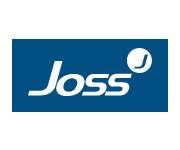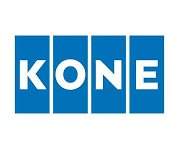Enhancing Retail Maintenance Management with CMMS Software
In the dynamic landscape of retail, maintaining a seamless operation is paramount to success. From ensuring equipment reliability to guaranteeing a pleasant shopping experience for customers, effective maintenance management plays a pivotal role. With the advent of Computerised Maintenance Management System (CMMS) software, retailers have gained a powerful tool to streamline and optimise their maintenance processes. Let's delve into the transformative role of CMMS software in retail maintenance management.
- Centralised Asset Management:
CMMS software serves as a centralised repository for all maintenance-related information, including asset details, maintenance schedules, work orders, and historical data. In the retail sector, where numerous assets such as HVAC systems, refrigeration units, lighting fixtures, and security systems are scattered across multiple locations, having a centralised database ensures easy access to critical information. Retailers can efficiently track asset performance, monitor maintenance activities, and make data-driven decisions to enhance operational efficiency. - Preventive Maintenance Optimisation:
Preventive maintenance is essential for retailers to minimise downtime, prolong asset lifespan, and reduce repair costs. CMMS software enables retailers to schedule preventive maintenance tasks based on equipment usage, manufacturer recommendations, and historical maintenance data. By automating preventive maintenance scheduling and reminders, CMMS software ensures timely inspections and servicing, thereby preventing unexpected breakdowns and disruptions to retail operations. - Efficient Work Order Management:
CMMS software streamlines the work order management process, from creation to completion. Retail maintenance teams can easily generate work orders, assign tasks to technicians, and track the status of ongoing maintenance activities. Moreover, CMMS software facilitates communication between stakeholders by providing real-time updates on work order progress, allowing for swift resolution of maintenance issues and improved collaboration among team members. - Inventory and Procurement Optimisation:
Effective inventory management is crucial for retail maintenance operations to ensure the availability of spare parts and consumables when needed. CMMS software allows retailers to maintain an accurate inventory of maintenance supplies, track usage patterns, and automate reorder points. By optimising inventory levels and streamlining procurement processes, retailers can minimise stockouts, reduce carrying costs, and enhance overall maintenance efficiency. - Data-driven Decision Making:
One of the key advantages of CMMS software is its ability to collect, analyze, and visualize maintenance data. By leveraging built-in reporting and analytics tools, retailers can gain valuable insights into asset performance, maintenance trends, and resource utilisation. This data-driven approach empowers retailers to identify areas for improvement, allocate resources more effectively, and make informed decisions to optimise maintenance strategies and maximise return on investment. - Compliance and Regulatory Requirements:
Retailers operating in highly regulated industries such as food and pharmaceuticals must adhere to strict compliance and safety standards. CMMS software helps retailers ensure regulatory compliance by maintaining comprehensive maintenance records, tracking inspection schedules, and generating audit trails. By demonstrating compliance with regulatory requirements, retailers can mitigate risks, avoid costly penalties, and uphold their reputation for reliability and safety.
In conclusion, CMMS software has emerged as a game-changer in retail maintenance management, offering a plethora of benefits including centralised asset management, preventive maintenance optimisation, efficient work order management, inventory and procurement optimisation, data-driven decision making, and compliance with regulatory requirements. By implementing CMMS software, retailers can enhance operational efficiency, minimise downtime, reduce maintenance costs, and ultimately deliver a superior shopping experience to customers














